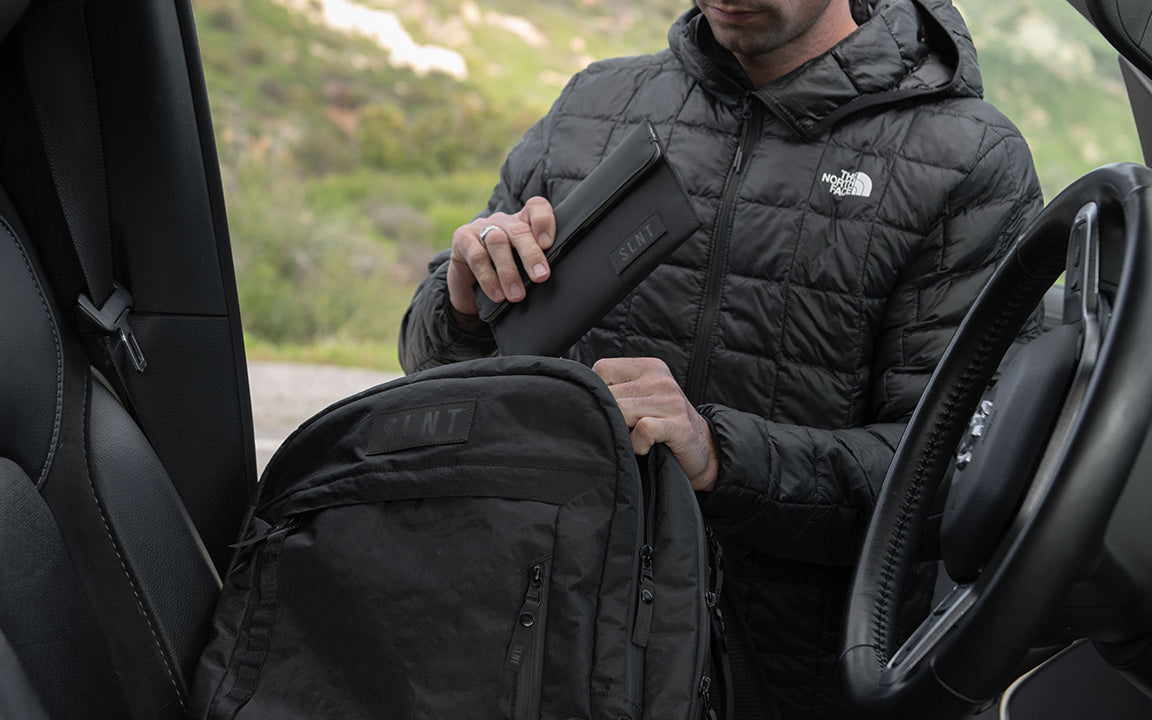Your Cart is Empty
Free Domestic Shipping on Orders Over $200
Free Domestic Shipping on Orders Over $200
Is your car tracking you, the data collected, what they are doing with it?
October 03, 2023 5 min read

Ever had that eerie feeling that someone's watching you? Well, if you're in your car, that might not be too far from the truth. Our vehicles, once simple machines, have evolved into data-collecting behemoths. Let's dive deep into this fascinating (and slightly unsettling) world of car data collection.
The Rise of the Smart Car
First came smartphones, then smart homes, and now, the era of smart cars. But as our vehicles get smarter, the lines between convenience and privacy start to blur. Wired recently shed light on how brands like Honda, Ford, and Chevrolet are collecting more than just vehicle diagnostics.
Today's cars are more than just vehicles, they're akin to smartphones on wheels. With apps connected to the internet, they collect vast amounts of data, some of which is deeply personal. A recent survey by the Automotive Industries Association of Canada revealed that only 28% of drivers clearly understand the types of data their vehicle produces. Even fewer, the same percentage, know who has access to that data.
What Exactly Are They Collecting?
Mozilla, the powerhouse behind the Firefox browser, took a magnifying glass to modern cars. Their findings were startling. Beyond the expected vehicle data like fuel levels and tire pressure, cars are now monitoring passengers, pedestrians nearby, and even interactions with apps like Google Maps. And here's the jaw-dropper: a whopping 84% of these brands might be selling or sharing this data.
The connected vehicle data market is booming. Analysts predict its worth could skyrocket to anywhere between $300 billion to $800 billion by 2030. This burgeoning industry is racing to gather vast amounts of data about drivers to cater to the growing demand for such information.
The Titans of Vehicle Data
Companies like INRIX, CARUSO, Verisk, LexisNexis, Otonomo, and Wejo are major players in the vehicle data hub space. For instance, Otonomo, a company based in Tel Aviv, boasts that it draws data from 50 million vehicles, tracking 330 billion miles and ingesting 4.1 billion data points daily. On the other hand, Wejo claims its data represents "one in every 28 vehicles in the USA.”
Privacy Implications in the Age of Vehicle Data
The rise of connected vehicles and the titans of vehicle data has brought forth a myriad of benefits, from real-time traffic updates to predictive maintenance. However, with these advancements come significant privacy implications that both consumers and regulators are grappling with.
It's worth noting that there have been advisories for military and government personnel regarding the potential risks associated with connecting their phones to vehicles. This cautionary stance underscores the perceived threats and vulnerabilities in the realm of vehicle data. If such high-level entities are being urged to exercise caution it highlights the gravity of the potential risks at play.
Detailed User Profiles
With vehicles collecting data on driving habits, routes taken, music preferences, and even voice commands, companies can create detailed profiles of users. These profiles can be used for targeted advertising, insurance rate adjustments, and more. While this can lead to personalized user experiences, it also raises concerns about how much companies know about an individual's daily life.
Car Data Sharing and Third Parties
Companies like Otonomo and Wejo, which aggregate vast amounts of vehicle data, often share this data with third parties. While this data is typically anonymized, there's always a risk of re-identification. Moreover, users often remain unaware of who their data is being shared with and for what purposes.
Potential for Surveillance
With real-time tracking capabilities, there's a potential for misuse in terms of surveillance with your car data. Law enforcement agencies could potentially request access to this data, leading to concerns about unwarranted surveillance and breaches of privacy rights.
Data Security
As with any connected system, there's a risk of data breaches. Hackers could potentially access sensitive data, leading to privacy violations. Moreover, if security vulnerabilities exist within the vehicle's systems, there's a risk of the vehicle being remotely controlled or tampered with.
Diving Deeper: The Many Eyes in Your Car
Once you step into a modern car, a plethora of sensors start working. From the moment the driver's door is unlocked to the ignition button is pressed, data points are recorded. As the journey continues, even more information is collected: vehicle location, speed, brake application, the song playing on the entertainment system, and so much more. This car data then embarks on its journey, moving from the car manufacturer to various companies known as "vehicle data hubs" and then through the connected vehicle data marketplace.
Rachael Medhurst from the University of South Wales highlights the various components in modern cars that are constantly gathering data:
- The Black Box: Not present in every vehicle, these devices monitor driving skills. They record GPS coordinates, travel distances, and even braking and cornering abilities.
- The Infotainment System: Gone are the days of simple cassette players. Modern systems, when paired with smartphones, can store data like navigation history, text messages, emails, and even social media feeds.
- Electronic Control Units (ECUs): Often described as the “brain” of the engine, ECUs are responsible for various tasks in a vehicle, from fuel injection to seat belt fastening. They store a plethora of data about vehicle usage.
- eCall Units: Introduced in 2018 across the EU and UK, these emergency systems detect collisions and automatically call emergency services. They collect data like GPS coordinates, direction of travel, and even seat belt status.
- Key Fobs: Beyond locking and unlocking cars, key fobs store data like the VIN and the last time the vehicle was accessed.
- Cameras: Reverse and dashboard cameras capture journey details, date and time stamps, and even images of other road users and pedestrians.
The Tesla Conundrum
Ah, Tesla. A beacon of innovation, but when it comes to privacy, they've raised more than a few eyebrows. Despite their cutting-edge AI, Mozilla's research suggests that Tesla might be a tad too curious about our car data. But it's not all gloom and doom. Tesla does assure users that they won't sell personal information. Still, it's worth reading up on their privacy practices.
Navigating the Data Highway
So, where does this leave us, the drivers? First and foremost, awareness. By understanding the data landscape, we can make informed choices. Dive into your car's settings and see if you can opt out of certain car data collections. And if you're in the market for a new car, maybe add 'data practices' to your checklist alongside horsepower and fuel efficiency.
Final Thoughts
In our rapidly evolving tech landscape, the car data is the newest member to join the data party.
Imagine a world where your car knows more about you than your closest friends. It remembers your favorite routes, the songs you hum along to, and even the coffee shop you frequent every morning. Welcome to the modern age, where our vehicles are no longer just modes of transportation but sophisticated data hubs on wheels.
The humble car has transformed from a mere mechanical marvel to a digital powerhouse, joining the ranks of smartphones and smart homes. Every turn of the wheel, press of a pedal, or voice command is a potential byte of data, waiting to be analyzed, processed, and possibly monetized.
But as we accelerate into this brave new world, there's a crucial aspect we must not overlook: our privacy.
The allure of convenience and connectivity can sometimes blind us to the potential pitfalls. Just as we wouldn't want strangers peering through our windows, we should be wary of invisible eyes prying into our digital footprints.
Let's champion transparency, advocate for robust data protection, and ensure that as we speed ahead, our privacy isn't just a fading landmark in the rearview mirror but remains a co-passenger, riding shotgun on every trip.
This article is reviewed by privacy experts at SLNT on 9/21/2023.






